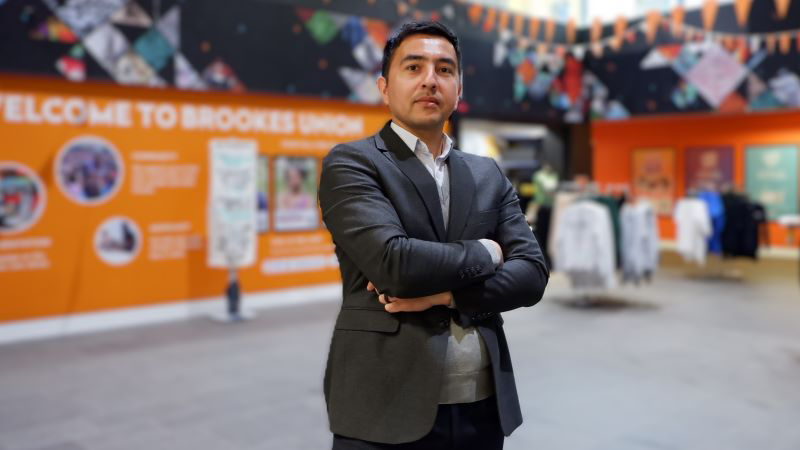Oxford Brookes Business School research student profiles
Thesis title: Navigating Backlash: Micro-Strategies of Black Women Diversity, Equity, and Inclusion Practitioners in U.S. Small and Medium-sized Enterprises
Started: January 2024
Director of Studies: Dr Charoula Tzanakou
How did you hear about Oxford Brookes University?
In 2020, I was attracted to Oxford Brookes University because of their excellent Human Resource Management program. I did my MSc in Human Resource Management here.
What attracted you to Oxford Brookes University to conduct your research?
I was encouraged to apply for the 2024 Center of Diversity Policy Research and Practice’s studentship opportunity. My field is Diversity and Inclusion studies, so this was a great fit and a wonderful opportunity to work with one of my previous lecturers.
What were you doing before?
After my MSc, I went into industry, working as an HR Coordinator then transitioned to the Diversity and Inclusion field. Prior to my PhD, I was working as a Client Success Manager for a Diversity and Inclusion data technology company.
How easy did you find it to settle into the research environment?
My supervisors made me feel very well-supported and I quickly became integrated into the community, especially with the other January starters. Working from the PhD suite played a huge role in my integration.
Tell us about your research
This research examines the micro-strategies of Black women Diversity, Equity, and Inclusion (DEI) practitioners advancing DEI work from within Small and Medium-sized Enterprises (SMEs) in the United States, particularly in the context of recent backlash against DEI efforts. It focuses on their daily strategies of resistance and advocacy in their DEI roles within organizations.
Black women have played a significant role in social justice activism and navigating multiple layers of oppression in the U.S. Despite their central role, they are often overlooked in corporate DEI efforts. Black women, facing intersecting forms of marginalization, are likely to encounter unique challenges in their roles. Furthermore, in today's expanding DEI landscape, where significant investments underscore its profitability, there remains limited understanding of how DEI practitioners implement micro-strategies in their daily work. Examining this within the U.S. context becomes imperative amid escalating DEI backlash, offering insights into navigating future challenges. This study aims to uncover the nuanced experiences of Black women DEI practitioners, shedding light on their invaluable daily contributions and strategies for navigating obstacles to achieve genuine, lasting DEI advancement.
This study will be informed theoretically by Black Feminism, Critical Race Theory, and critical diversity studies. It will draw upon the works of Audre Lorde, Abrica and Oliver Andrews, and Gray et al. to demonstrate how the DEI profession is driven by white interests and agendas. Additionally, literature from critical diversity management and organizational studies will be employed to explore how micro-strategies are shaped and influence diversity work within organizational settings.
Empirically, an innovative multi-media digital diary study will be utilized, combined with interviews, to delve into the everyday strategies of ~25 Black women DEI practitioners. This methodology will allow the participants’ worlds to be virtually experienced as their everyday contributions and strategies are analyzed through multi-media diary entries.
By centering the experiences and perspectives of Black women DEI practitioners, the study will offer unique insights and strategies that can influence and inform DEI practice and advancement, particularly in the context of DEI backlash. This research is aimed at DEI practitioners and changemakers, organizational leaders committed to DEI, and diversity scholars interested in advancing diversity, equity, and inclusion knowledge and efforts.
The study offers significant contributions to the field of DEI research through several novel avenues. Firstly, it delves into the nature of DEI work, providing a rare glimpse into the daily contributions and strategies of Black women DEI practitioners—a group often overlooked in the literature. Secondly, by employing innovative multi-media digital diary methods, the study pioneers new ground in qualitative research methodologies, particularly in the realm of DEI studies. Thirdly, it integrates frameworks from Black feminism and Critical Race Theory with critical diversity management and organizational studies, a combination seldom explored in existing literature. This study's originality will provide a fresh perspective that is not commonly found in DEI scholarship.
What do you enjoy about being a research student?
I most enjoy the autonomy to focus on my research and other academic engagements. I have been able to attend and present at conferences and am working on two part-time projects to gain more experience in both academia and industry.
Sometimes making my own schedule can be challenging but I have learned to start working in Pomodoro cycles to maintain my momentum. Going into the office and having dedicated working hours helps to keep me focused and on track. Also, setting clear deadlines and expectations with my supervisory team helps to hold me accountable.
What do you think about the research training offered at Oxford Brookes?
The training programs were excellent in ensuring I was aware of what was expected of me. The Qualitative research methods training/workshops also helped me to expand my knowledge on different ways to collect research and how to be innovative in my study.
What are your future plans?
In the future, I would love to become a lecturer after completing my PhD. The goal would be to teach at a top university one day. I would also like to continue researching alongside my teaching and working on Knowledge Exchange projects in order to make a tangible impact within the Diversity and Inclusion industry. I hope to really build my networks and expertise in teaching, research, and public speaking so that I can become a thought leader in Diversity, Equity, and Inclusion. I may also want to write and publish books and educational materials for Diversity and Inclusion practitioners to utilise.
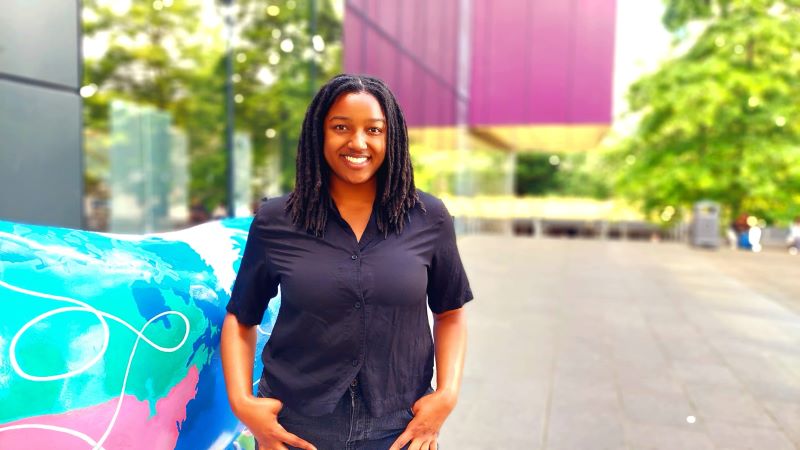
Thesis title: Survival learnings of a centenary, family-run, luxury fashion company facing disruption: an historical perspective.
Started: September 2023
Director of Studies: Dr Ioanna Iordanou
Second Supervisor: Dr Simon Adderley
Third Supervisor: Dr Ian Holgate
What attracted you to Oxford Brookes University to conduct your research?
Opportunities for cross-faculty supervision between the humanities and business are rare. Oxford Brookes offered me a unique avenue for my doctoral work through the support of its leading scholars: Dr Ioanna Iordanou and Dr Simon Adderley from OBBS and Dr Ian Holgate from the School of Education, Humanities and Languages.
What were you doing before?
Before joining the programme, I completed a Master’s in Research from the Royal College of Art, London. Now, my work at the university sits at the confluence of fashion and organisation studies at Oxford Brookes Business School (OBBS). In addition to my scholarship, I am the managing director of development and a shareholder of a multi-business unit holding company based in London and New York that specializes in investments in the arts, culture, media, and technology industries.
Earlier last year, I presented a lecture at the Work In Progress (WIP) exhibition at London’s Central St Martin's Masters Architecture Programme titled Survival Learnings in a Creative Organisation in March of 2023. In the spring of 2022, I planned and co-produced the Education and Creative Technologies Testbed Symposia launch of the Human-Machine Collaboration Conference, organised by the University of Oxford’s Mathematical, Physical and Life Sciences Division, supported by Amazon Web Services (AWS). Similarly, I produced the British Council’s GREAT webcast lecture, Local Knowledge, Global Networks: Digital Futures for Higher Education, presented by Dr Howard Hotson, Professor of Early Modern Intellectual History, University of Oxford. I continue collaborating with researchers at the University of Oxford's CABINET (the University of Oxford Centre for Teaching and Learning focused on innovative pedagogical platforms) and the Oxford Internet Institute (OII) on the role of advanced media technologies in data visualisation.
Tell us about your research
My PhD thesis explores the articulation, enabling, and enacting of the strategy deployed by a centenary, family-run, luxury fashion company—as it ensures its continuance when faced with disruption. In my professional context, creative disciplines enrich company strategy; nonetheless, academic literature does not adequately acknowledge the unique contribution of creative disciplines in formulating strategy. In a creative context such as fashion, family-run companies may offer unique insights into articulating, enabling, and enacting strategy in the face of disruption.
Tell us something about your academic work as a research student
In alignment with my interests in creativity and business, I organized and hosted the roundtable session with Dr Yuniya Kawamura, Professor of Sociology at the Fashion Institute of Technology, New York and filmmaker Frédéric Tcheng, held at Oxford Brookes’ 4th International Creative Industries Festival this April 2024.
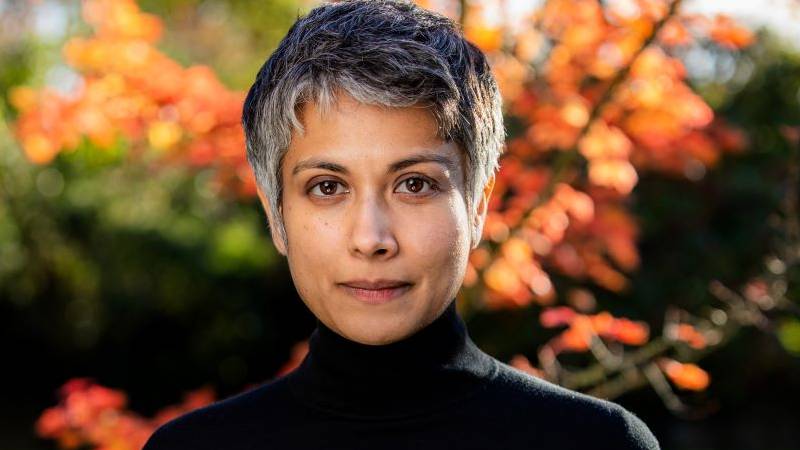
Thesis title: Examining the efficacy of a positive psychology-based self-coaching approach to support parents of children with ADHD.
Started: September 2023
Director of Studies: Dr Christian Ehrlich, Dr Judie Gannon (Supervisor)
Where are you from?
I grew up in Dublin, Ireland, but moved to the UK in 2000, and have lived in Woodstock for the last six years.
Even though the programme is structured for distant learning, I love being so close to the campus.
How did you hear about Oxford Brookes University?
Having worked in education (marketing and communications) I knew a little about Oxford Brookes, but when I moved to Oxford I discovered the Oxford Brookes Coaching and Mentoring Society and knew I wanted to be part of that community.
I saw the Doctor in Coaching and Mentoring (DCM) programme, but for many reasons I didn’t have the confidence to apply. It wasn’t until I met for lunch with a fellow alumnus from my master’s programme, Dr Lindsay Foreman, who was in her final DCM year that she empowered me to find the courage to apply.
As soon as I spoke to the DCM team, I was confident that this is where I was supposed to be, to build on my previous studies in Applied Positive Psychology and Coaching Psychology (MAPPCP). I met with Dr Judie Gannon and Professor Tatiana Bachkirova who couldn’t have been more inspiring, and I knew that I would be both challenged and well supported through my studies!
What attracted you to Oxford Brookes University to conduct your research?
The DCM programme at Oxford Brookes is at the forefront of research in coaching and mentoring. The coaching industry is huge, but largely unregulated, and even though I already had Senior Practitioner Accreditation with the European Mentoring and Coaching Council (EMCC), I felt it was important to me to be rooted in best practice and surrounded by a community who are working towards the greater good.
The DCM would not only elevate me academically, but propel my practice and contribution to the field with research-informed wisdom.
What were you doing before?
I started studying positive psychology and coaching on the MAPPCP programme at University of East London in 2017. At that time, I had been working as a marketing, communications and business development director in education for over 15 years. I also previously dabbled as an actor, having completed a degree in acting in 1999 and was an antenatal facilitator with the National Childbirth Trust (NCT) after retraining in 2006.
Most of my coaching work since MAPPCP has centred around executive coaching, primarily supporting professionals completing INSEAD online programmes. While working on the INSEAD programmes, I noticed that many of the leadership tools being taught to leaders would be useful for parents and others supporting young people, particularly around creating positive work/home cultures, so was keen to explore this more.
As a parent of two neurodivergent boys, I was acutely aware of the challenges of parenting children who were perceived ‘different’ in society and not objectively supported in educational environments. When support is made available, the response is often deficit-based, focusing on ‘fixing’ what is wrong. In business, it is clear that focusing on what is strong improves relationships, work efficacy and performance, yet this is often missed in education, and carried into the home environment. Going through the process of getting any support for my own children was laborious with waiting lists for NHS children’s services (CAMHS) over two years in some areas, I felt so strongly that more accessible support was needed for these marginalised families.
I ended up changing my initial research plans from exploring strengths-based narratives in coaching to understanding what neurodivergent families needed and whether something could be developed to help support them through a non-pathologised approach while waiting for clinical support. Examining this through a coaching lens was novel and very exciting for the field.
How easy did you find it to settle into the research environment?
From my first day at the university, I felt as if I belonged. I had initially been really nervous, doubting my academic ability, but the DCM programme is structured to inspire, inform, and challenge through regular touch points and learning modules. The environment is so welcoming, with many opportunities to connect with others, attend talks, and be part of the wider academic community.
Each term we have taught modules on campus and check in points, which suits my learning style and my Director of Studies and Supervisor give me space to explore but are incredible at keeping me on track. The other student- researchers, both in my cohort and other DCM and PhD years, are very inspiring, encouraging and I have learned so many different perspectives through them.
As someone with ADHD, I also feel well supported. I have access to the tools I need to study and learn effectively and can arrange additional support through the learning support team, library and specialist research services.
Tell us about your research
Children with Attention Deficit/Hyperactivity Disorder (ADHD) often face a constant stream of corrective feedback, with estimates suggesting up to 20,000 negative comments by the age of ten, just in school. But the weight of this doesn’t fall on the child alone. Parents of neurodivergent children carry invisible pressures: navigating stigma, exhaustion, blame, and the daily toil of advocacy. And yet, they are often left out of wellbeing efforts, despite being central to a child’s capacity to thrive.
My research followed a mixed-methods approach exploring a six-week self-coaching intervention for parents of children with ADHD. With positive psychology at its core, parents adopted flexible practices in mindfulness, self-kindness, values-based affirmations, and gratitude to strengthen parental efficacy, emotional resilience, and relatedness.
A randomised controlled trial (N=219) measured stress, self-concept clarity, wellbeing, and perceived child behaviour across three time points, using stress stratification to reflect varying parental loads. Anonymised focus group data added rich context to these outcomes.
While positive psychology has many evidence-based interventions, self-coaching is a less studied but promising avenue for empowering parents to take ownership of their well-being, with or without peer group support. My study aims to expand the knowledge of adaptive positive psychology applications for marginalised groups, including parents of neurodivergent children, potentially offering a flexible, low-cost support model, either preventatively or alongside/awaiting clinical treatment.
The aims of the Investigation are:
- To quantitatively test the impact on stress and well-being through self-coaching, using positive psychology interventions aimed at building self-concept and self-kindness, in parents of children with ADHD
- To explore the relative impact of these interventions with or without peer support.
- To qualitatively evaluate the diverse experiences of participants, identifying barriers to success and insights on effective implementation.
- To contribute to academic knowledge on self-concept and self-kindness for stress management in parenting, and the practice of self-coaching, harnessing positive psychology, in marginalised groups.
What do you enjoy about being a research student?
I simply love learning, and being a research student allows me to push the boundaries of what I think I can achieve, to explore new territories and to validate or challenge existing theories. It also allows me to develop my professional practice in ways that I would not ordinarily have time to do in my business.
Due to the way my ADHD brain works, I have a tendency to want to do everything, to look beyond the scope of my academic question and to discover new avenues of interest. I occasionally struggle to rein it in and to focus just on the task at hand, but with support I have learned to keep coming back to my objectives. Using project management tools, a study skills advisor and regular check-ins with my supervisors have been invaluable.
The tech side of things have also been a bit challenging. Having worked with a lot of business tech, including communication platforms, funnels and AI in the past, I feel that some of the educational platforms and technology have been restrictive.
I have learned however that the scope is there to use technology outside of the university approved platforms, once it is well justified, and due diligence has taken place through information security and ethics processes. I have built up more confidence to ask for what I need now rather than accept these perceived boundaries, enabling me to deliver innovative research in the most efficient way.
What do you think about the research training offered at Oxford Brookes?
I have found the variety of structured learning modules and additional talks, workshops and peer-sharing, invaluable for my growth as a researcher and to develop essential skills for professional practice.
My eyes have been opened to the breadth of methodological approaches and grounded my research practice in a robust process for exploration and validation. The tutors and supervisors are incredible, and offer a good balance between being supportive and challenging your thinking.
What are your future plans?
I have been lucky to be able to share my research already at academic conferences across the globe from Florida to Brisbane. I hope to continue presenting and talking at events, and plan to write a practical book for parents informed by my research. I am also keen to start contributing to the academic literature, writing papers and articles for key publications.
Also, I will continue to develop my online community for parents to learn, connect and practice self-care, while creating accessible online resources for parents who are waiting for professional support.
Longer term, within my research, I developed a Positive Self-Coaching Framework, which I would like to explore as a tool for wider-adoption outside of families. I additionally haven’t ruled out taking up a position as a post-doctoral researcher to further hone my academic skills!
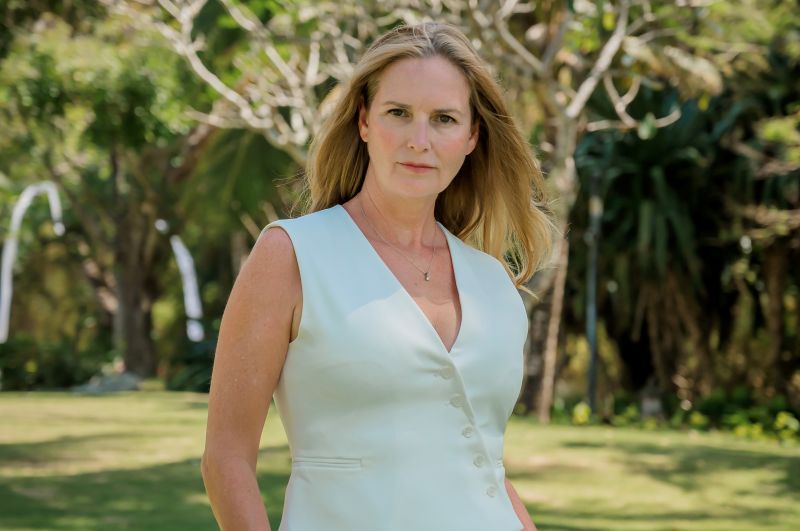
Thesis title: Supervision for team coaches: The issues, challenges and experiences and what those may indicate about the capabilities needed for supervisors to be fit for this role
Started: January 2023
Director of Studies: Dr Peter Jackson
Where are you from?
Western Canada. I was living in Calgary (near the Rocky mountains) before coming here.
How did you hear about Oxford Brookes University?
I follow my Supervisor (Tatiana Bachkirova) on LinkedIn. The year before a milestone birthday I noticed a post about studentships, and thought “why not”. I had a week to apply and did not think I would be able to put together a quality application in that time. I was pleasantly surprised with how much reading and thinking I had already done in order to put together a proposal that ultimately ended up in my being offered the studentship.
What attracted you to Oxford Brookes University to conduct your research?
My Director of Studies and Supervisor and their work was what initially attracted me. I had met both separately in Canada at different conferences. In many ways, the UK is much further ahead with coaching and coaching supervision research than North America. When I asked others familiar with Brookes they all had good things to say about campus and Oxford in general. I have lived and worked overseas for a good portion of my life, and following covid, I was excited to get out and explore the world again while also pursuing my dream of earning my PhD and learning how to conduct rigorous research.
What were you doing before?
I was working as an Organizational Development Consultant and Executive and Team Coaching practitioner. 80% of my work was as an internal consultant, and the other 20% was independent contractor work.
How easy did you find it to settle into the research environment?
The time of year I came was a bit challenging (Jan 2023), as I was the only new student, so I felt a little bit isolated and didn’t have a lot of people around to ask for help or to show me the ropes but I notice this fall there is a larger group of new researchers, which adds to the buzz and community feel. I think there is a lot of support and excellent resources available across OBBS and campus. I keep discovering new opportunities and things, so that’s great.
Tell us about your research
My inquiry will explore the experience of team coaching supervision from the perspective of both supervisors and coaches in order to develop an understanding of the capabilities required of supervisors to provide an effective service to their team coach clients.
I plan to conduct and analyse semi-structured interviews on the individual reflexive experiences of coaches and supervisors, as well as the meanings constructed by observers based on their reflections on the recordings.
The study seeks to address the following questions:
- What happens in supervision sessions with team coaches? i.e. What do coaches bring as issues to reflect on, what else is explored in these sessions and what difficulties do supervisors and coaches experience in their work together?
- What do the experiences indicate about the capabilities needed of supervisors to provide a quality supervision experience?
Conducting this research is essential to expanding the existing literature on coaching supervision. It will contribute to developing the coaching and supervision knowledge base, and my inquiry has the added benefit of examining the novel and emerging context of team coaching. I have completed registration and ethical approval and am currently recruiting participants.
What do you enjoy about being a research student?
Because my area is still developing there are many research gaps. It is difficult to find peer reviewed literature, but looking at adjacent fields and speaking with reference librarian (Isabel Virgo) has been very helpful. It feels great to be able to potentially contribute to the development of the profession with solid empirical research.
What do you think about the research training offered at Oxford Brookes?
I would like to recognize the many things OBBS and Brookes do to support us. Karen Handley and Rosa Codina ran two very invaluable series on Qualitative Methods, Sylwia Ciuk and Judi Gannon also arrange regular 20/20 and PhD Suite Talks.
Maria Brown, Susan Brooks and the Research Degrees Team also do a great job of anticipating and responding to student’s academic and personal development needs and offer many valuable support.
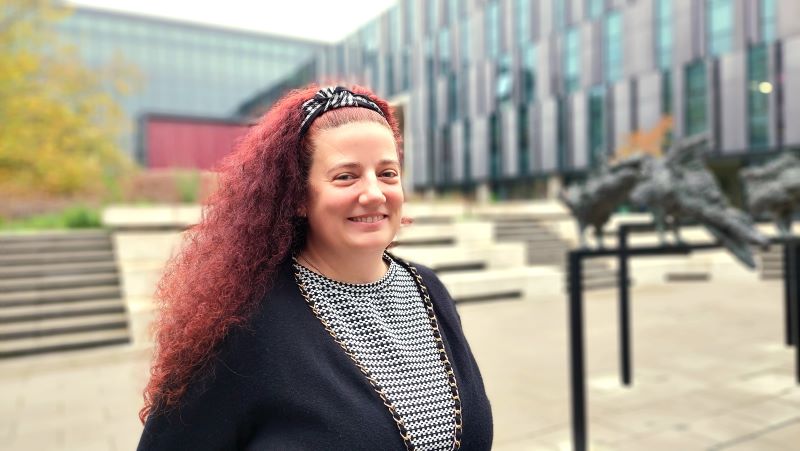
Thesis title: The potential of product placement in mobile games as an advertising strategy: A study evaluating the effectiveness through recall and recognition for Indian female consumers.
Started: April 2016
Director of Studies: Professor Sarah Quinton
Where are you from?
India
How did you hear about Oxford Brookes University?
I found out about Oxford Brookes University through a Google search when I was looking to apply for a research degree programme at a university which offered Digital Marketing.
What attracted you to Oxford Brookes University to conduct your research?
After my masters’ degree, I was looking for universities to apply to for a doctoral degree which was credible and highly reputed. I conducted sufficient research and shortlisted universities which are highly ranked across a span of different research projects especially within the Marketing subject area. This is when I came across Oxford Brookes University. I was clear that I wanted to be a part of a university which provided a high-quality student experience and would prepare me for a career in academia. I was impressed with the research student profiles across the University and at the Faculty level which was very diverse. I found various interesting active research projects about digital marketing strategies. Most importantly, my potential supervisors’ (who are also my current supervisors, Dr Sarah Quinton and Prof Janine Dermody) research profiles; their research interests and experience attracted me to join Oxford Brookes University. Additionally, Oxford is a beautiful place to live with a strong student community presence around the city.
What were you doing before?
Before commencing my PhD journey at Oxford Brookes University, I completed a Masters’ by research (MRes) at the University of Exeter.
Prior to starting my journey in the United Kingdom, I worked as a Lecturer at Reva First Grade College and Brindavan College in India, and as an Activation Officer at Nestle India Ltd.
How easy did you find it to settle into the research environment?
It was very easy for me to settle into the research environment as I had just completed my masters’ degree and produced a dissertation on consumers’ stance towards mobile games as a communication medium, a case study of Indian gamers. The PhD programme at the Business School is well structured (registration, ethics approval, transfer, and the final submission) and communicated very clearly in the induction session, which is helping me to focus and plan my work to achieve the set milestones. Both my supervisors are very supportive in various stages of the PhD programme and for the deadlines that I need to adhere to. At the beginning, the library training was particularly useful for me to know from where and how to get access to the resources available for my research. The University also offers support by providing various research training and networking events.
Tell us about your research.
The purpose of my research is to investigate the effectiveness of product placement through recall and recognition in mobile games as experienced by Indian female consumers. In the last few years, with progress in technology, the ways of advertising are changing as advertisers look for new avenues of reaching the target consumers. Product placement is a creative and productive tool in the promotion mix which combines the advertisement with the entertainment, blurring the advertised content. Creating awareness using product placement strategy has been the main goal of advertisers. Although movies and television programmes have been popular choices for product placement because of its wide reach, over the past few years, it has expanded to other forms of media like video games, computer games and games played on social networking platforms.
A mobile phone is the easiest form of entertainment whilst on the move. Mobile games are an interactive and engaging platform, it provides a way for gamers to interact with the products placed in the game than just being mere passive viewers of advertisements. Many video games are now moving to the mobile platform to increase their audience reach. Digital games are traditionally associated with men. But with the increased use of mobile devices, games have also attracted a lot of women consumers. Mehta (2016) highlights that Indian women are outplaying men in mobile games. Men and women approach and interpret advertisements with different motives and perspectives. The growing number of women playing mobile games, the increase in disposable family income, and their response to media can have a positive impact for gaming companies in India, attracting advertisers to reach these women gamers. Thus, the underpinning idea of this study is to conduct gender-specific research examining the effectiveness of product placement through recall and recognition in an interactive and engaging platform like mobile games. Furthermore, this research will be conducted in a naturalistic environment to explore the opportunities and limitations with product-placement strategy in a hand-held environment.
My project will employ a mixed methods research approach, where the participants will be asked to play a game on their smartphones and answer a questionnaire after playing the game. Additionally, in order to understand the perspectives of the participants about the game and their experiences of the product placement concept in detail, semi-structured interviews will be conducted. This research will develop a product placement framework.
What do you enjoy about being a research student?
I enjoy being a research student primarily because it gives me an opportunity to explore my research topic in detail with a new perspective; to read different theories and other researchers’ insights about the topic and at the same time see the practical implementation. Although it is a journey of my choice, there are times when I am muddled and look for guidance. My supervisors have always been supportive and guiding me at all stages. I am always supercharged after meetings with my supervisors who constantly encourage me to work hard and produce quality work within the agreed deadlines.
The challenging aspect so far in my PhD journey is to maintain consistency with my work. ‘Being efficient and systematic’ has been my mantra until now; to constantly discipline myself and plan my day-to-day activities. I strongly believe that it is important to break long-term goals into working short-term goals and each time I accomplish a goal I list it and reward myself! I feel with these little rewards, along with the list of accomplishments, motivates me to work hard in the long run.
What do you think about the research training offered at Oxford Brookes?
The training events at Oxford Brookes University are plentiful and communicated in advance. The Graduate College Training Programme including time management, tackling the writing stage, media training workshop and data management and storage have helped me to learn strategies for careful planning and execution, and has allowed me to be productive throughout my PhD journey. I find the career and personality development training to be very engaging and covers a span of training programmes from how to write a job application, how to get a job and the interview skills required for researchers in academia. Courses also focus on non-academic jobs; enhancing personal effectiveness as a researcher through the MBTI framework, for example, has been beneficial for me, as I am aware of the opportunities that I can look for and how to apply. Seminars from the Oxford Brookes Business School such as the 20-20 seminars every semester, International Research Conference and Biennial Doctoral Event provides an opportunity to interact with guest speakers and different PhD students and listen to a range of research methods, the data collection process, and the challenges. I have attended many seminars and training from the very beginning of my PhD journey and will continue to attend, this is helping me to enhance my skills set and learn new concepts which are valuable as an early career researcher.
What are your future plans?
After completing my PhD, I aspire to continue my career in academia as a priority. However, if I become aware of some interesting market research work in any company, I am open to that as well.
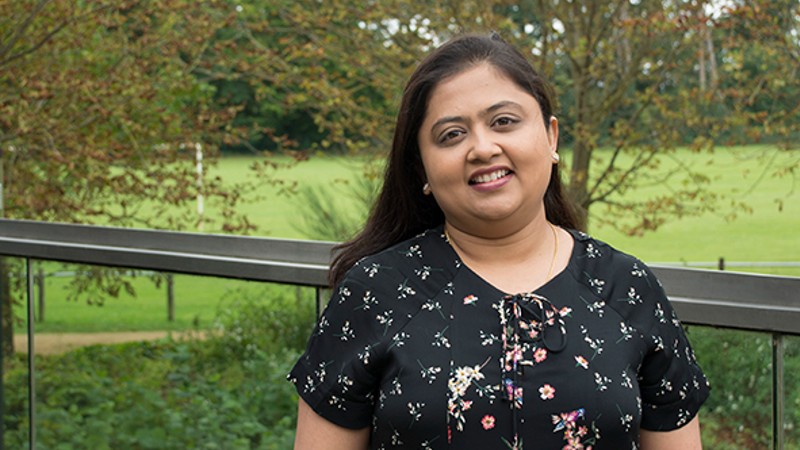
Thesis title: Virtual Tourism Initiatives in the Global South: Digital Tools for Heritage Conveyance and Community Empowerment.
Started: January 2024
Director of Studies: Rosa Codina
Where are you from?
Brazil
How did you hear about Oxford Brookes University?
My initial connection with the university was through a research project I was contributing to, where I had the opportunity to collaborate with scholars from Brookes. This experience exposed me to cutting-edge research, skilled professionals, and a supportive environment.
What attracted you to Oxford Brookes University to conduct your research?
The positive experience I had collaborating with its research group during a previous project drew my attention to Brookes, where I became familiar with its strong reputation in teaching, tourism, and sociology-related studies. Additionally, the fully funded Studentship awarded by the institution made Brookes an excellent choice for conducting my research.
What were you doing before?
Before starting my doctoral studies, I worked as Regional Education Project Manager for Brazil's largest non-profit organization. I led the design, supervision, and execution of initiatives focused on Scientific Communication, Anti-racism Education, and Digital Inclusion, particularly for socially vulnerable populations.
My responsibilities included strategic planning, training and supervising teams, organizing impactful educational events, and establishing partnerships with museums, universities, and third-sector organizations.
Tell us about your research
My doctoral research investigates how digitised tourism experiences by community-led tourism initiatives (CLTIs) impact place transformation, heritage preservation, and digital mobility within their territories.
Study keywords: Community-led tourism; Social technologies; Digital transition; Heritage sustainability; Decolonising Research; Participatory methods.
In grassroots initiatives, tourism can be a powerful tool to promote social change by amplifying the voices of socially minoritised groups, such as Indigenous, rural, and favela communities, through fostering diverse economic practices, strengthening local autonomy, and sustaining cultural heritage. Within the virtual domain, studies have shown that a digital presence in the travel industry can provide these groups with opportunities to generate additional income, attract face-to-face visitors, expand communication reach, garner political attention, and mobilise local agendas on marginalised identities, memories, and culture.
However, many CLTIs face challenges in achieving a sustainable digital transition due to limited technical and financial resources, often relying on external partnerships that may compromise the authenticity and autonomy of their initiatives. Despite the growing use of digital tools in this context, there remains a lack of understanding of how digitisation impacts social cohesion, economic autonomy, and heritage sustainability in socially vulnerable settings. Further research is needed to map community initiatives, identify risks, and examine capacity-building opportunities to prevent local socio-economic disruptions, in addition to better comprehending the benefits, challenges, and impacts of digitised tourism practices on marginalised social entrepreneurs.
Within this context, my research explores the actors, settings, and contexts of CLTIs adopting digital strategies, looking at approaches to enhance capacity-building, strengthen digital autonomy, and foster heritage sustainability.
Focusing on a case study in Brazil, the study employs a mainly qualitative methodological approach guided by an interpretivist theoretical perspective. The New Mobilities Paradigm is used as an analytical framework to investigate the movement of people, territories, and narratives. The study incorporates Decolonising Research methods and Global South epistemologies to locate the perspectives of local actors at the centre of the analysis of complex social phenomena. Therefore, the research employs a community-focused and participatory approach to assess the benefits, challenges, and risks encountered by communities undergoing digital transformation.
What do you think about the research training offered at Oxford Brookes?
The research training is comprehensive, especially the Qualitative Research Methods sessions, which offer a thought-provoking and insightful environment that encourages active debate and participation. The open, diverse, and inclusive atmosphere makes it easy to share and discuss ideas, helping researchers develop and refine their work.
What do you enjoy about being a research student?
The autonomy and the space for debate and critical thinking that the academic environment provides. Most importantly, I value the opportunity to generate positive social impact and amplify minoritised narratives through my research. Connecting with other scholars is also a highlight, as it allows me to share ideas and learn from diverse perspectives.
To overcome research-related challenges, I focus on staying organized, setting clear goals, and building a supportive social and academic network.
What are your future plans?
My future plans encompass a blend of teaching, research, and project management, with a strong focus on collaborating with social entrepreneurs and change makers. I aspire to work in fields that intersect heritage, sustainability, digital entrepreneurship, and community capacity building. I aim to leverage these skills through roles at research centres, museums, third-sector organisations, and governmental bodies, driving initiatives that are both socially and environmentally impactful.
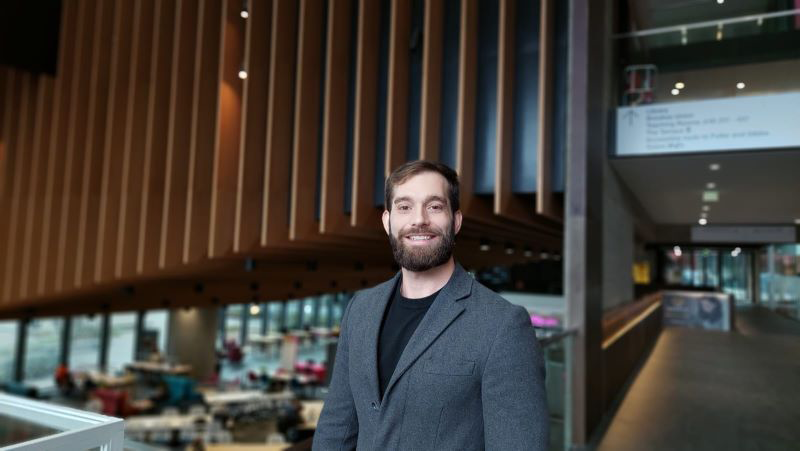
Thesis title: A comprehensive examination of pro-sustainable behaviour and its impact on tourist well-being and word-of-mouth intention.
Started: July 2023
Director of Studies: Professor Levent Altinay
Where are you from?
Uzbekistan
How did you hear about Oxford Brookes University?
I was following my Director of Studies Levent Altinay before becoming a student. I have known the good reputation of this University in the field Tourism and Hospitality since 2016 when I started to look for a place to study.
What attracted you to Oxford Brookes University to conduct your research?
I was attracted to Oxford Brookes University for its renowned Research Group and the expertise of specific researchers in my field. And Oxford City was a reason too.
What were you doing before?
Before coming here, I worked at Silk Road University in Samarkand. I taught tourism subjects and helped to collaborate with different universities at the International Relations Department.
How easy did you find it to settle into the research environment? What do you think about the support and resources available to research students?
When I hear the word “support”, two names that directly come to my mind are Judie and Sylwia, who are directing OBBS. I had a difficult time when I arrived but with their help and support, I managed the challenges. I have never had any problem with resources, which is fantastic.
Tell us about your research
Tourism, while economically vital, often has significant negative impacts on the environment, leading to issues like habitat destruction, pollution, and overconsumption of natural resources. In recent years, the growing concern over these environmental consequences has led to a focus on promoting pro-sustainable behaviour (PSB) among tourists.
This study aims to explore the factors that motivate tourists to adopt sustainable behaviours and examine the broader effects of these behaviours on their well-being and their likelihood to recommend destinations to others. Although much has been done to understand PSB in tourism, less attention has been given to the emotional and moral drivers that underpin these behaviours. Emotional factors, like a sense of responsibility toward the environment or moral obligation, have been explored in conservation psychology, but they remain under-researched in the context of tourism.
Moreover, while the benefits of sustainable tourism for the environment have been studied, fewer researchers have examined how engaging in PSB affects the well-being of tourists themselves. Furthermore, the connection between PSB and word-of-mouth intention—the likelihood of tourists recommending a destination based on their experience is important direction as well. This study attempts to fill this gap by investigating the link between tourists’ sustainable behaviours and their sense of hedonic (pleasure-based) and eudaimonic (purpose-driven) well-being.
To investigate these relationships, data will be collected through on-site surveys at Blenheim Palace, a heritage site known for its efforts to promote sustainable tourism. The survey will measure key constructs, such as tourists' perceptions of personal values. These constructs are essential in understanding the motivations behind pro-sustainable actions. The survey will also assess tourists’ well-being, separating it into hedonic and eudaimonic dimensions, and their likelihood of recommending the destination. Hence, this research makes several important contributions to the field of tourism and sustainability. First, it bridges two key theoretical models—the Norm Activation Model (NAM), which explores how personal norms and moral responsibility drive pro-environmental behaviour, and the PERMA model, which explains well-being in terms of both immediate emotional satisfaction and deeper meaning or purpose. By integrating these models, the study provides a more holistic understanding of how moral and emotional factors influence sustainable behaviour in tourism.
Second, the research offers new insights into the social outcomes of pro-sustainable behaviour, particularly the link between PSB and tourist well-being. This is especially significant as the well-being of individuals, alongside environmental preservation, is increasingly recognized as a critical aspect of sustainability. Finally, the study will explore how engaging in PSB can enhance a tourist’s experience, making them more likely to recommend destinations to others, which is crucial for promoting sustainable tourism. This research, practically, provides empirical data to help tourism managers and policymakers develop strategies by understanding the drivers and outcomes of PSB, destinations can better balance environmental protection with the well-being of visitors, contributing to the long-term sustainability of the tourism industry.
What do you enjoy about being a research student? Can you tell us about any challenges you face and strategies you use to overcome these?
As a research student, I enjoy the opportunity to explore new ideas, contribute to knowledge, and engage with a community of like-minded peers and mentors. The process of discovery and learning is exhilarating.
Challenges I face include, managing time effectively, dealing with research setbacks, and addressing stress. To overcome these, I prioritize tasks with a clear schedule and seek feedback regularly from advisors and peers.
What do you think about the research training offered at Oxford Brookes?
Oxford Brookes offers comprehensive research training that equips students with vital skills in research methodologies, critical thinking, and effective communication. It balances theoretical knowledge with practical application, laying a good foundation for successful research.
What are your future plans?
My plan includes pursuing advanced studies in my field, gaining research experience through training, and ultimately working in a role that allows me to apply my research skills and contribute to the tourism and hospitality sphere. I aim to stay engaged in continuous learning and professional development throughout my career.
